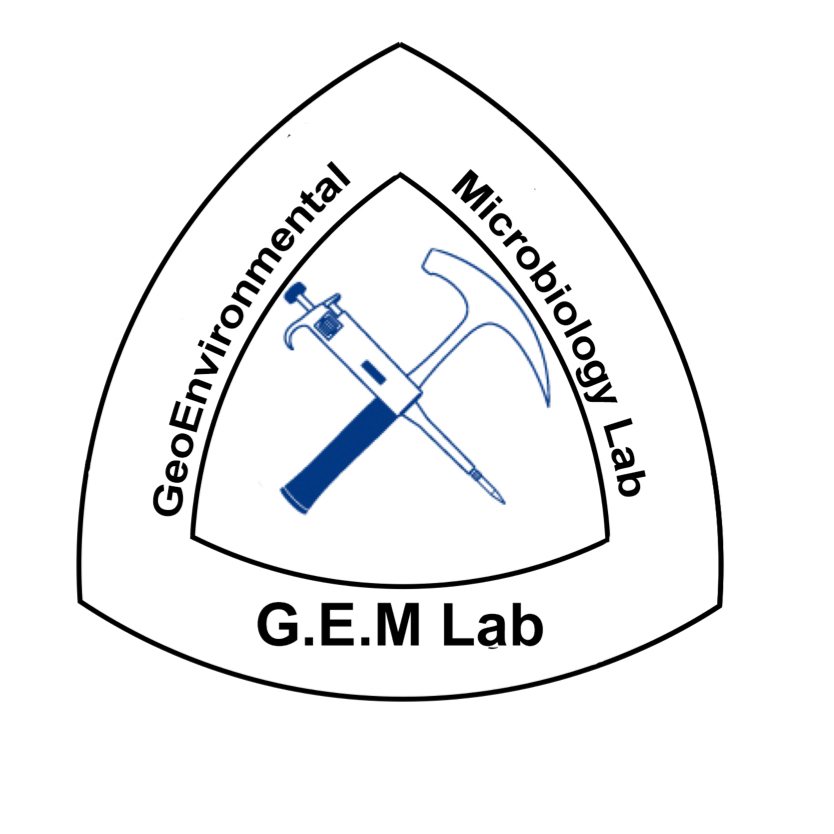Lab Members
Munakata-Marr Lab
Graduate Students
Sharp Lab
Graduate Students
Michael Vega
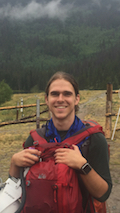 Michael is an environmental engineering PhD candidate working in the Sharp Lab. He received his bachelor’s degrees in geology and chemistry at Kansas State University while researching metal cycling (As, Mn, Fe) in groundwater. Michael now focuses on contaminant attenuation and biogeochemical cycling in open-water engineered wetlands that treat a wastewater-impacted river in southern California. Specifically, Michael’s work investigates how microbial clades and enzymes impact the fate of inorganic nitrogen and wastewater-derived pharmaceutical compounds during wetland treatment. To understand these processes, he combines molecular and geochemical field data to inform bench-scale experiments aimed at decoupling pathways which are challenging to parse in complex field environments.
Michael is an environmental engineering PhD candidate working in the Sharp Lab. He received his bachelor’s degrees in geology and chemistry at Kansas State University while researching metal cycling (As, Mn, Fe) in groundwater. Michael now focuses on contaminant attenuation and biogeochemical cycling in open-water engineered wetlands that treat a wastewater-impacted river in southern California. Specifically, Michael’s work investigates how microbial clades and enzymes impact the fate of inorganic nitrogen and wastewater-derived pharmaceutical compounds during wetland treatment. To understand these processes, he combines molecular and geochemical field data to inform bench-scale experiments aimed at decoupling pathways which are challenging to parse in complex field environments.
Spear Lab
Graduate Students
Kalen Rasmussen
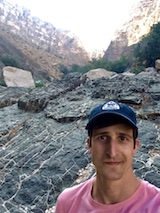 Kalen is currently a masters student in John Spear’s lab. He received his Bachelor’s degree in Chemical and Biochemical Engineering from Mines as well. He has worked on a variety of projects ranging from the impacts of rare earth elements on the microbial communities in wastewater treatment plants with Dr. Munakata-Marr to the microbiota of sour style beers. Kalen is currently funded through the Enda Bailey Sussman Foundation and the National Park Service, focusing on laminated, lithified, silica based hot springs in Yellowstone National Park. By exploring the living microbial communities, geochemical cycles, and lithified biomat associated with these hot springs I hope to link the lithified past with the living present.
Kalen is currently a masters student in John Spear’s lab. He received his Bachelor’s degree in Chemical and Biochemical Engineering from Mines as well. He has worked on a variety of projects ranging from the impacts of rare earth elements on the microbial communities in wastewater treatment plants with Dr. Munakata-Marr to the microbiota of sour style beers. Kalen is currently funded through the Enda Bailey Sussman Foundation and the National Park Service, focusing on laminated, lithified, silica based hot springs in Yellowstone National Park. By exploring the living microbial communities, geochemical cycles, and lithified biomat associated with these hot springs I hope to link the lithified past with the living present.
Alex Honeyman
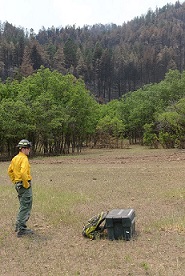 Alex has worked part-time as a technician in the Spear Lab for two years, while filling his other hours as a Firefighter-EMT in the Rocky Mountains. Beginning Fall, 2018, Alex entered the Ph.D. program at the School of Mines with Dr. John Spear. Alex has been involved in a project assessing the microbial community structure of produced water (fracking) treatment systems and has also led a number of different projects: on microbial community composition of water-rock equilibrated communities in a mine, on the geographic dependence of fresh snowfall microbiology and chemistry leveraging remote sensing storm-track analyses, and on the role of microbe-soil dynamics in ecological response to high-severity forest fire burns in Colorado. Overall, Alex aims to synthesize high-throughput DNA sequencing / analysis techniques with remote sensing and big data.
Alex has worked part-time as a technician in the Spear Lab for two years, while filling his other hours as a Firefighter-EMT in the Rocky Mountains. Beginning Fall, 2018, Alex entered the Ph.D. program at the School of Mines with Dr. John Spear. Alex has been involved in a project assessing the microbial community structure of produced water (fracking) treatment systems and has also led a number of different projects: on microbial community composition of water-rock equilibrated communities in a mine, on the geographic dependence of fresh snowfall microbiology and chemistry leveraging remote sensing storm-track analyses, and on the role of microbe-soil dynamics in ecological response to high-severity forest fire burns in Colorado. Overall, Alex aims to synthesize high-throughput DNA sequencing / analysis techniques with remote sensing and big data.
Patrick Thieringer
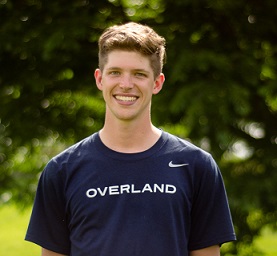 Patrick is a Ph.D. student in John Spear’s lab with a BA in Geoscience from Skidmore College. His research interests include identifying the metabolic pathways that support microbial growth in the subsurface low temperature serpentinized environment, and the geochemistry significant in influencing these processes. Patrick is connected with the NASA Astrobiology Institute’s Rock Powered Life group, which has a field site researching the water-rock interactions and microbial life in the Samail Ophiolite in Oman. He is interested in combining techniques of genomic analysis with lipid extraction and analysis to better develop biomarker detection.
Patrick is a Ph.D. student in John Spear’s lab with a BA in Geoscience from Skidmore College. His research interests include identifying the metabolic pathways that support microbial growth in the subsurface low temperature serpentinized environment, and the geochemistry significant in influencing these processes. Patrick is connected with the NASA Astrobiology Institute’s Rock Powered Life group, which has a field site researching the water-rock interactions and microbial life in the Samail Ophiolite in Oman. He is interested in combining techniques of genomic analysis with lipid extraction and analysis to better develop biomarker detection.
Volunteers:
Linda Toberer
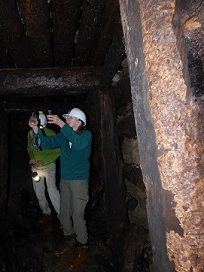 Linda is a volunteer in Dr. Spear’s lab and is fascinated by the wealth of biodiversity, complexity, interrelatedness of the world of the very small. She is researching microbes and fungi from a mine that has been deactivated for a hundred years. Her research focuses on identifying the organisms that thrive in an acidic environment for possible uses in acid mine drainage remediation. Linda has a bachelor’s degree in biology and was a physical therapist for 45 years. After retirement she went back to her old love of biology.
Linda is a volunteer in Dr. Spear’s lab and is fascinated by the wealth of biodiversity, complexity, interrelatedness of the world of the very small. She is researching microbes and fungi from a mine that has been deactivated for a hundred years. Her research focuses on identifying the organisms that thrive in an acidic environment for possible uses in acid mine drainage remediation. Linda has a bachelor’s degree in biology and was a physical therapist for 45 years. After retirement she went back to her old love of biology.
